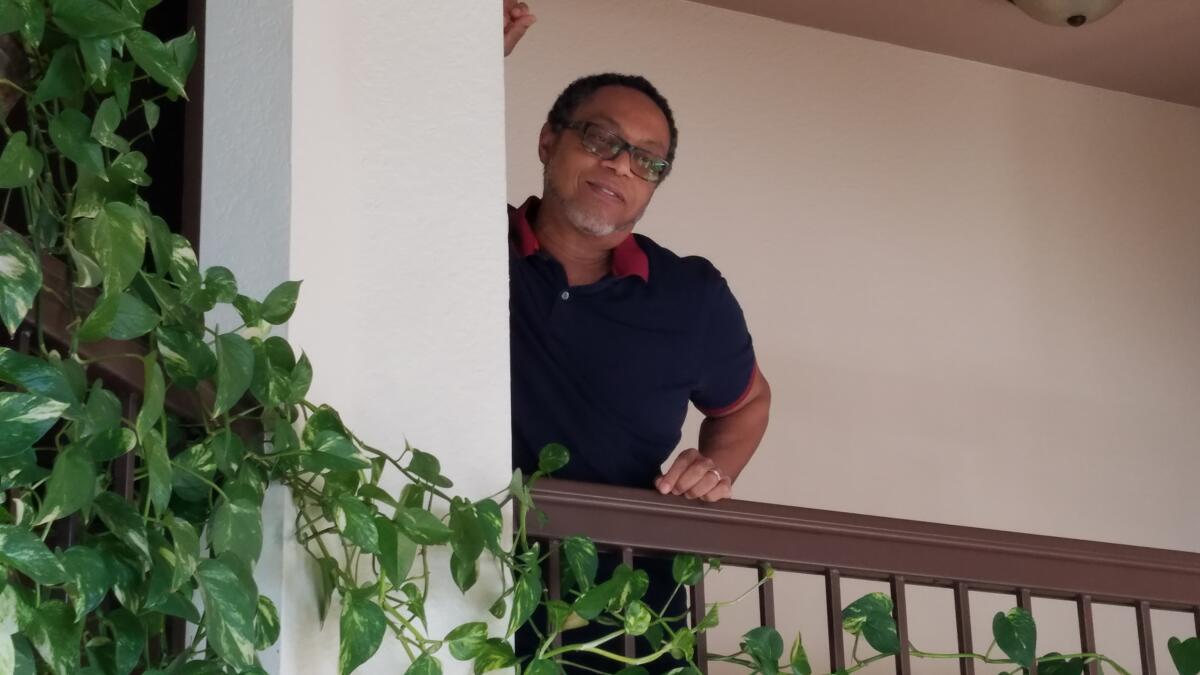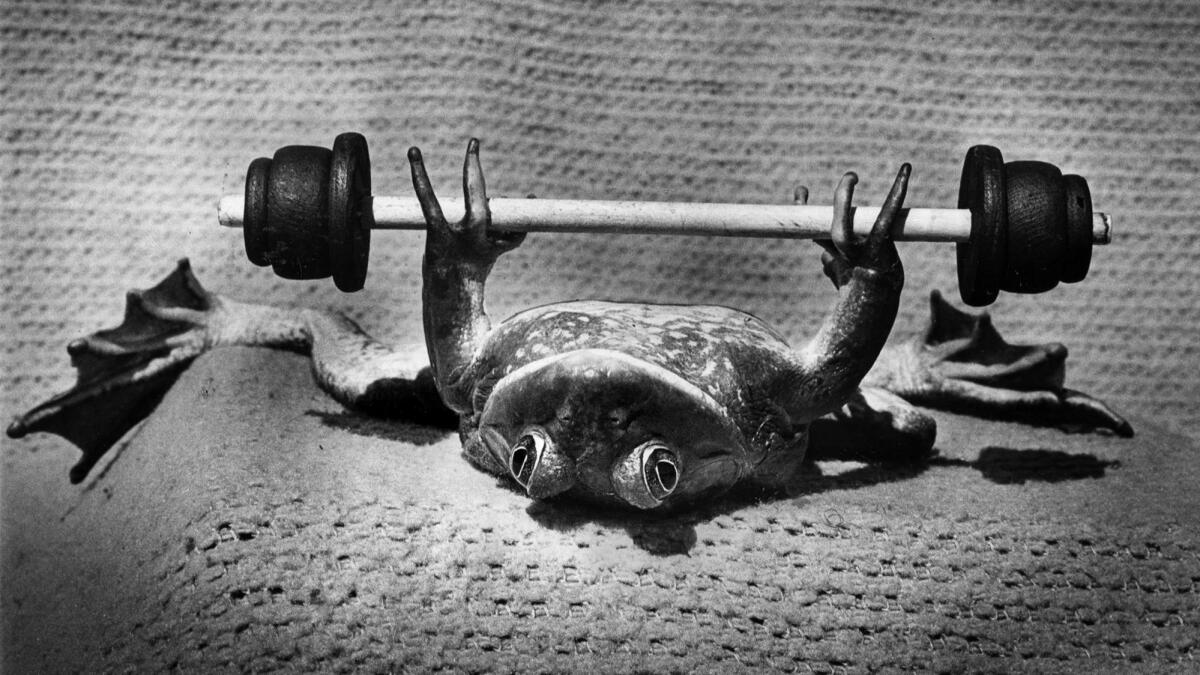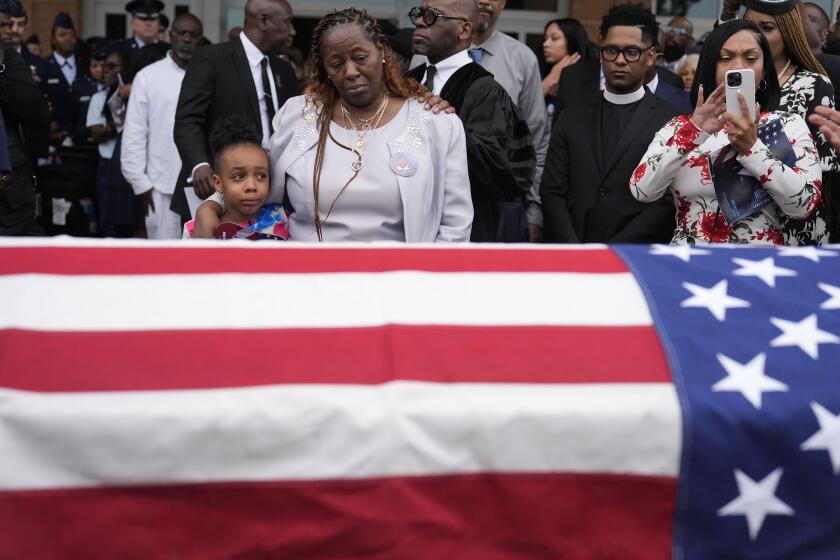Today’s Headlines: The ‘long hauler’ mystery

Researchers are getting serious about understanding a disease that patients call “Long COVID.”
TOP STORIES
The ‘Long Hauler’ Mystery
Hundreds of thousands of Americans, and likely millions more across the world, have shaken off a coronavirus infection but still contend with persistent, and perplexing, aftereffects.
Among those with “Long COVID,” headaches, fatigue and shortness of breath are common. Problems with memory, concentration, sleep and balance abound. Athletes and fitness buffs who scarcely noticed they were ill find that, months later, they can no longer exercise because of heart palpitations, grinding fatigue and muscle weakness.
“Long haulers” are an enigma on many levels, but researchers are trying to understand them. Who they are and how many of them remain ill after a SARS-CoV-2 infection are unknown. What drives their bizarre array of symptoms is, as yet, unexplained. Their prognoses remain uncertain. And so is the answer to the most pressing question: How can they be helped?
More Top Coronavirus Headlines
— The pandemic turned Curative from a tiny start-up into a testing giant. But after some patients received false positives and negatives, can its results be trusted?
— For many LGBTQ students, going away to college brought a newfound freedom and sense of belonging. But after a year stuck back at home with unaccepting families, many have felt trapped, or pushed “back into the closet.”
— A new coronavirus variant found in India has two mutations in the spiky protein that the virus uses to fasten itself to cells — changes that could be a concern since they might help the virus spread more easily and escape the immune system.
For more, sign up for Coronavirus Today, a special edition of The Times’ Health and Science newsletter.
No Easy Answers on Immigration
With immigration once again making headlines, two Californians are poised to have a political impact.
On Wednesday, President Biden tapped Vice President Kamala Harris to lead diplomatic efforts to deal with rising numbers of migrants at the southern U.S. border. Her goal will be to enlist Mexico and Central American countries to help address what the administration calls the root causes of migration. The assignment speaks to the seriousness with which Biden, who took on a similar task when he was vice president, is approaching the problem — choosing his second in command to represent him in the region.
Meanwhile, Alex Padilla, California’s newly appointed senator and the first Latino to represent the state in the U.S. Senate, has optimism that a major immigration reform bill is possible under Biden, who has said that such reform is a priority, and with narrow Democratic control of the Senate and House.
“No state has more at stake in it than California, and that’s who I represent, so it is a top priority. I come with urgency,” Padilla told The Times.
More Politics
— Gov. Gavin Newsom has appointed Assemblyman Rob Bonta to serve as California attorney general. If confirmed, the Bay Area Democrat and criminal justice reform advocate would be the first Filipino American to hold the post, which was vacated by Xavier Becerra’s departure to join Biden’s Cabinet.
— Biden is scheduled to give his first news conference as president this afternoon, which should be a test of his newfound verbal discipline.
— Amid calls for Asian American representation in that Cabinet, Rep. Judy Chu, a Democrat from Monterey Park, is pushing for him to name Nani Coloretti to head the Office of Management and Budget — a post for which nominee Neera Tanden withdrew her name after facing opposition.
— Pennsylvania Health Secretary Rachel Levine has been confirmed as Biden’s assistant secretary of Health, becoming the first openly transgender federal official to win Senate confirmation.
How to Respond to Hate?
For many Asian Americans, from immigrants to fifth generation, facing verbal harassment or mocking gestures has been an all too familiar part of their lives. The incidents usually don’t rise to physical attacks but feel at times like a window into a deeper well of hate.
Now, a recent spate of attacks against Asians, punctuated by the mass shooting in the Atlanta area last week that killed eight people, including six Asian women, has put a spotlight on these more mundane incidents of bigotry.
The verbal harassment happens in elevators, restaurant bathrooms, taxis and public sidewalks, thrusting victims into a situation for which there is no playbook.
For a deeper understanding of the experiences of Asian Americans and Pacific Islanders in the U.S., The Times has compiled a list of more than 40 books, including recommendations from novelists such as Viet Thanh Nguyen, Charles Yu and Steph Cha.
FROM THE ARCHIVES
It was inspired by a Mark Twain short story, but the Calaveras County Fair and Jumping Frog Jubilee is very real and has been since 1928.
The competition is simple: The frog that jumps the farthest wins. And the results can be surprising — a 2013 Times story detailed how scientists began to rethink what they knew about bullfrogs’ jumping abilities after observing the competition.
Competing frog owners take it seriously. A March 28, 1976, Los Angeles Times story spotlighted a man named Bill Steed, who opened a training service called “Croaker College.” He said his techniques included hypnotism to help frogs become strong competitors.

CALIFORNIA
— Authorities moved to close down a homeless encampment in Echo Park that has become a highly charged test of city leaders’ struggle to balance constituents’ demands for clean streets and public spaces with the ever-growing tragedy of people who have no homes. Police allowed the encampment residents to stay through the night, but gave them 24 hours to leave.
— Los Angeles is one of the last places in California still burning coal for electricity — and if all goes according to its clean energy plan, it could become one of the country’s first major cities to nearly eliminate fossil fuels from its power supply.
— Scientists have pinpointed a long-overlooked portion of the southern San Andreas fault that they say could pose the most significant earthquake risk for the Greater Los Angeles area — and it’s about 80 years overdue for release, though it may not do quite as much damage as previously feared.
— L.A. will pay up to $150,000 to settle a lawsuit brought by a former aide to Jose Huizar who said he was fired after speaking up about possible crimes committed by the then-councilman.
Support our journalism
Subscribe to the Los Angeles Times.
NATION-WORLD
— As the nation debates gun control after two mass shootings in Colorado and Georgia, a California-based federal appeals court decided that states may restrict the open carrying of guns without running afoul of the 2nd Amendment.
— A leader of the Oath Keepers militia was communicating with members of the far-right Proud Boys in the weeks leading up to the U.S. Capitol attack, federal prosecutors say — suggesting for the first time the extremist groups had formed an alliance for the day of the deadly assault.
— North Korea test-fired its first ballistic missiles since Biden took office, as it expands its military capabilities and increases pressure on Washington while nuclear negotiations remain stalled.
— In what’s being hailed as a conservation success story, the number of bald eagles — once dangerously close to extinction in the U.S. — has more than quadrupled over the last dozen years, despite massive declines in overall bird populations.
HOLLYWOOD AND THE ARTS
— Before Stevie and Lindsey, Peter Green was the soul of Fleetwood Mac. Just ask Mick Fleetwood.
— Activists have launched a growing number of grass-roots initiatives aimed at helping marginalized film and TV talent advance in the industry in the last year.
— Live music and theater in L.A. will happen outdoors in summer. But with so much uncertainty remaining, it won’t be easy.
— Kaitlyn Greenidge’s new novel “Libertie,” loosely based on the life of the first Black female doctor in New York, asks many questions, answers few and heralds a blossoming literary career.
— A father-son muppet duo from “Sesame Street” will star in a new series educating children on race and racism.
BUSINESS
— A federal judge in Los Angeles has tossed a reporter’s antitrust lawsuit against the Hollywood Foreign Press Assn., handing the group behind the Golden Globes a significant victory in a battle that has drawn widespread Hollywood attention — at a time it’s already under pressure to reform.
— On any given day, more than 50 ships traverse the Suez Canal, bearing millions of tons of cargo — until a mammoth vessel ran aground and became wedged in the vital waterway.
SPORTS
— In the second round of the women’s NCAA basketball tournament, UCLA’s season ended with a loss to Texas.
— One night in 1980, as two woeful Division III basketball teams played in a near-empty Pasadena gym, Gregg Popovich’s Hall of Fame career nearly died before it began.
Free online games
Get our free daily crossword puzzle, sudoku, word search and arcade games in our new game center at latimes.com/games.
OPINION
— It’s time California put the brakes on new housing developments in fire country, The Times’ editorial board writes. The attorney general should make clear to local officials that the state is ready to challenge dangerous development decisions.
— Washington’s new cold war with China involves an infrastructure race, a GDP race and arguments over whose political system is superior — and it may even yield some positive side effects, columnist Doyle McManus writes.
WHAT OUR EDITORS ARE READING
— The Biden administration has so far denied journalists access to border facilities, which has raised questions about its commitments to increased transparency. (CNN)
— Inside the nationwide Republican push to ban trans kids from playing youth sports, and why opponents worry it will force them back into the closet. (Vox)
ONLY IN L.A.
Remember fried chicken sandwiches? That was so 2020. Today it’s all about the fried fish sandwich. “Fried fish sandwiches oozing with tartar sauce are crowding my social media feeds in a way that simply can’t be ignored,” writes food columnist Jenn Harris. “Most are inspired by a specific style of fish sandwich, steeped in comfort, with origins that can be traced back to two famous golden arches.” But at these 10 L.A. businesses, they’re made with catfish, Vermilion rockfish and even a plant-based protein.
Comments or ideas? Email us at headlines@latimes.com.
Start your day right
Sign up for Essential California for news, features and recommendations from the L.A. Times and beyond in your inbox six days a week.
You may occasionally receive promotional content from the Los Angeles Times.



